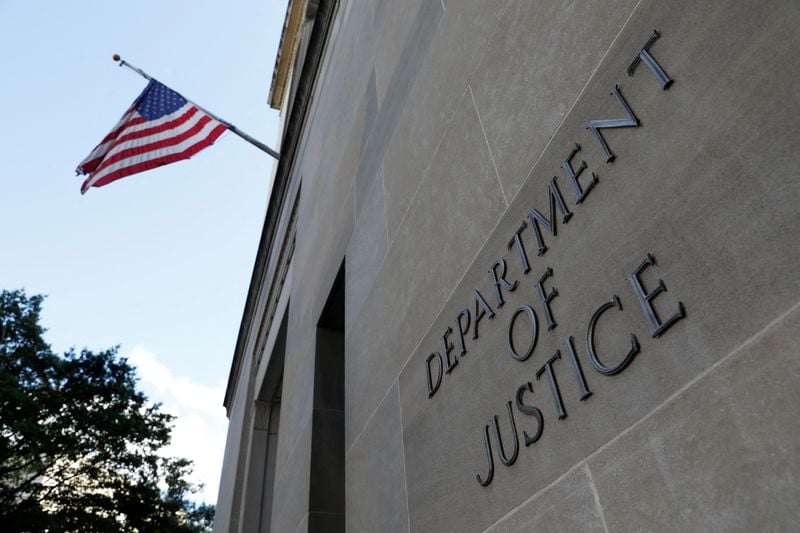Baltimore, Maryland –Keon Ball, age 45, of Baltimore, Maryland, pleaded guilty today to wire fraud conspiracy and aggravated identity theft in relation to multiple identity theft schemes and fraud schemes—including schemes conducted while on probation after a past state fraud conviction and while on pre-trial release in connection with state fraud charges. As part of his plea agreement, Ball will be ordered to pay at least $715,504 in restitution.
The guilty plea was announced by United States Attorney for the District of Maryland Erek L. Barron; Special Agent in Charge Bo Keane of the United States Secret Service – Baltimore Field Office; and Chief Melissa R. Hyatt of the Baltimore County Police Department.
According to his guilty plea, from May 2018 to June 2020, Ball and a co-conspirator incurred charges of over $1,000,000 on fraudulently established credit lines, using the identities of at least 10 victims in connection with the schemes. For example, on August 25, 2018, Ball submitted a false and fraudulent application for a credit line account from a financial institution using the name, birth date, and social security number of Victim 1. After the credit application was approved, Ball and his co-conspirator incurred $105,442.59 in purchases from Company 1 (a home improvement store) under the identity of Victim 1. Ball and his co-conspirator did likewise multiple other times afterward, incurring charges of over $150,000 in connection with lines of credit opened using various other victims’ names—none of which was repaid. Ball and his co-conspirator also repeatedly passed fraudulent checks to Company 1 purporting to pay the balances they incurred.
Further, as part of their scheme to defraud, Ball and his co-conspirator obtained two vehicles valued at over $60,000 and multiple pieces of heavy construction equipment valued at over $30,000 using the identity information of Victim 2.
As stated in his plea agreement, on February 5, 2019, law enforcement executed a search and seizure warrant on Ball’s luxury high rise in Baltimore where law enforcement seized multiple counterfeit identification documents including three fraudulent licenses, a card reader, re-encoder, bank white plastic card stock, hologram overlays, and a firearm which Ball was prohibited from possessing. Investigators also discovered that Ball leased the apartment using a counterfeit identification document and the identifying information of another identity theft victim. Law enforcement would also go on to recover multiple pieces of the fraudulently obtained heavy equipment. Ball was subsequently arrested and charged on a state level in connection with the fraudulent credit line scheme then was released on conditions.
As stated in the plea agreement, despite his pending state charges, Ball was not deterred and his fraudulent activity continued. In June and July 2020, Ball submitted fraudulent CARES Act Paycheck Protection Program loan applications (PPP loans) and obtained $256,664 in government-backed PPP funds for purported businesses that did not exist in any legitimate capacity. Included with each application was a document purporting to be a 2019 IRS Form W-3 Transmittal of Wage and Tax Statements which was in fact not legitimate and contained false information concerning purported wages paid and purported number of employees of each business. Each application also falsely affirmed that Ball was not on probation in light of a past conviction at the time of each application. The PPP funds were then deposited in a bank account that Ball had opened using the identity information of another victim.
Ball also started the PPP loan application process for two additional fraudulent PPP loans from Bank 1 in the amounts of $113,258 and $231,078.000 for purported businesses he ran. These loans, however, ultimately did not close.
In total, Ball caused a loss of $750,000 and intended losses of over $1,450,000 and used the identifying information of more than 10 victims in connection with his schemes.
On May 17, 2021, the Attorney General established the COVID-19 Fraud Enforcement Task Force to marshal the resources of the Department of Justice in partnership with agencies across government to enhance efforts to combat and prevent pandemic-related fraud. The Task Force bolsters efforts to investigate and prosecute the most culpable domestic and international criminal actors and assists agencies tasked with administering relief programs to prevent fraud by, among other methods, augmenting and incorporating existing coordination mechanisms, identifying resources and techniques to uncover fraudulent actors and their schemes, and sharing and harnessing information and insights gained from prior enforcement efforts. For more information on the Department’s response to the pandemic, please visit https://www.justice.gov/coronavirus.
Anyone with information about allegations of attempted fraud involving COVID-19 can report it by calling the Department of Justice’s National Center for Disaster Fraud (NCDF) Hotline at 866-720-5721 or via the NCDF Web Complaint Form at: https://www.justice.gov/disaster-fraud/ncdf-disaster-complaint-form.
The Pandemic Response Accountability Committee (PRAC) Fraud Task Force was established to serve the American public by promoting transparency and facilitating coordinated oversight of the federal government’s COVID-19 pandemic response. The PRAC Fraud Task Force brings together agents from its 22 member Inspectors General to investigate fraud involving a variety of programs, including the Paycheck Protection Program. Task force agents who are detailed to the PRAC receive expanded authority to investigate pandemic fraud as well as tools and training to support their investigations.
Ball faces a maximum sentence of twenty years in federal prison for wire fraud conspiracy and a mandatory consecutive two years in federal prison consecutive to any sentence imposed for aggravated identity theft. U.S. District Judge Deborah K. Chasanow has scheduled sentencing for July 22, 2022, at 11:30 a.m.
United States Attorney Erek L. Barron commended the USSS and the BCPD for their work in the investigation. Mr. Barron thanked Assistant U.S. Attorney Paul A. Riley, who is prosecuting the case.
For more information on the Maryland U.S. Attorney’s Office, its priorities, and resources available to help the community, please visit https://www.justice.gov/usao-md and https://www.justice.gov/usao-md/community-outreach. For more information on identity theft and fraud, please visit https://www.justice.gov/usao-md/report-fraud.
# # #
